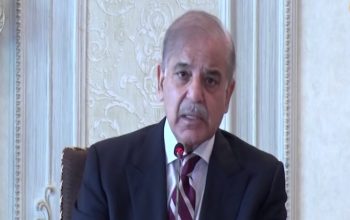ISLAMABAD: Coordinator to the Prime Minister on National Health Services and Regulation, Malik Mukhtar Ahmad, Monday, while reiterating the government’s commitment to expand family planning services said it was critical for national development, economic stability and health outcomes, especially in maternal and child health.
He said Pakistan has revised the existing National Action Plan on Population (NAPP) 2019-24 in consultation with provinces, regions and other stakeholders. The revised NAPP 2025-30 aims to achieve the targets: to increase contraceptive prevalence rate (CPR) to 60 percent in 2030; to reduce total fertility rate (TFR) to 2.2 percent in 2030; and to reduce population growth rate (PGR) to 1.1 percent in 2030.
Speaking as chief guest at the ceremony of World Contraception Day and signing LOU for Poocho health helpline, Islamabad Capital Territory (ICT) health department and Green Star Social Marketing, he said the government prioritises reproductive health as part of its broader agenda. He said that Pakistan, with a population exceeding 240 million, faces significant reproductive health challenges.
Highlighting the issue of fast growing population in the country, he said as per Population and Housing Census 2017, Pakistan’s population was 207.8 million, growing at an alarming rate of 2.4 percent per annum within just six years it has reached 241.5 million, according to the Population and Housing Census 2023.
In the country’s first census in 1951, the enumerated population was 33.74 million. In fact, Pakistan’s population has increased more than seven times since 1951. At present, Pakistan is the 5th most populous country in the world, with population growth at 2.55 per cent per annum. Pakistan’s population is projected to reach 263 million by 2030 and 383 million by 2050.
He said that family planning reduces maternal and newborn mortality by preventing unintended pregnancies and spacing births, directly benefiting Maternal, Newborn and Child Health (MNCH) outcomes. Prioritising family planning is crucial for achieving global health goals and empowering women with reproductive choices.
He appreciated the role of Community Health Workers in Contraception Awareness. Community Health Workers (CHWs) are the backbone of contraceptive awareness and family planning services, particularly, in underserved and rural areas. Their close community engagement allows them to dispel myths, answer questions, and provide information about the importance of contraception in maintaining reproductive health. Through counseling and home visits, CHWs ensure access to contraceptives, referrals to clinics, and continuous follow-ups, empowering women to make informed reproductive choices. Strengthening the capacity of CHWs is essential to increase awareness, improve family planning uptake, and promote MNCH services.
While talking on the importance of Poocho Health Helpline to improve SRH Services Access, he said that Poocho Health Helpline provides confidential, reliable information on sexual and reproductive health (SRH), family planning, and maternal health services, ensuring anonymity and reducing barriers. It serves as a lifeline for women, particularly in areas where face-to-face access to healthcare providers is limited, enabling timely counseling and guidance on contraception. The helpline can refer callers to the nearest service providers, facilitating easy access to contraceptives and reproductive health services, including MNCH resources.
Copyright Business Recorder, 2024
Read the full story at the Business Recorder - Latest News website.



